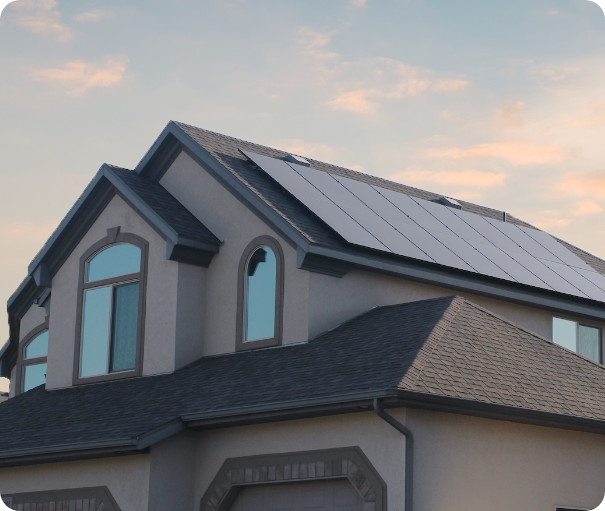How to Switch to Solar Power?
Step 1
Get a free quote from our experts. Learn what system configuration suits you the best and just how much money you can save!
Step 2
Sit back while we take care of the design and permits and governement incentive application for your solar panels. All you have to do is give us your approval to move forward!
Step 3
Stress-free Installation and activation. We take care of everything from roof repair, tree cutting, and installation. Sit back, relax and watch the magic happen!
Going Solar with Momentum in Georgia

Georgia, also known as the Peach State, ranks in the top half of states for the number of peak sun hours per year. With all of that sunshine, it makes perfect sense why homeowners in Georgia are switching to solar energy every single day.
How Much Can I Save?
Transitioning to solar means taking the steps to a cleaner, price-protected energy that can help you lower your monthly utility bills. Homeowners in Georgia see an average of $29,625 in savings after 25 years of producing solar energy.
- The average monthly electricity bill in Georgia is around $125- $140
- With the Investment Tax Credit (ITC), you can reduce the cost of your PV solar energy system by 26 percent
How Solar Energy Works
You’ve probably seen solar panels popping up more around your neighborhood and wondered about how it all works. Luckily, understanding how solar energy powers your home is actually simple.
When sunlight hits the photovoltaic (PV) panels, electrons become excited, creating a direct current (DC) of electricity. This current is fed into an inverter, which converts DC electricity into alternating current (AC) electricity so it can be used by appliances in your home.
Solar Incentives in Georgia

One of the biggest incentives you can benefit from when you go solar is the federal Investment Tax Credit (ITC). The ITC is a 30% tax credit for solar systems on residential and commercial properties. The residential and commercial solar ITC has helped the U.S. solar industry grow by more than 10,000 percent since it was implemented in 2006, with an average annual growth of 50% over the last decade alone. Most recently, Congress passed a two-year delay of the ITC phasedown in 2020 allowing more homeowners to be eligible.
This incentive will last until the end of 2022, and then drop down to a 22% tax credit in the year 2023. So, what does this mean for homeowners? It means, the sooner you make the switch the better! The ITC won’t last forever.
Aside from the ITC, Georgia homeowners have additional local incentives for going solar. Depending on where you live and your utility company, Georgia’s net metering policy allows some homeowners to sell the excess energy they’ve generated back to the utility company.
Creating Jobs in Your Hometown
In the US alone, the solar industry employees more than 200,000 people nationwide, and more than 3,000 of these hard workers are in Georgia. Not only is solar helping reduce carbon emissions and heal our planet, it also providing jobs to many Americans.
Momentum Solar is in Georgia
Momentum Solar is known for its’ “no-strings-attached” offering — homeowners can go solar for little-to-no money out of pocket and, oftentimes, have the benefit of a lower electric bill. Affordable roof repairs or replacements are offered for homes that are being prepped for installation.
With a newly launched office in Atlanta and nationwide capabilities, Momentum Solar is committed to helping homeowners just like you convert to clean, solar energy. In Georgia, three financing options are typically available:
- Pay upfront for your system: If you are able to, paying for your system outright in cash offers substantial savings over time.
- Take out a loan: Many homeowners don’t have enough money to pay for their system outright, but taking out a loan allows them go solar sooner. There are several types of loans available and we can help you find the best one for your financial situation. With a loan, you’ll be able to get a solar system installed on your property for $0 down so you can start experiencing cost savings sooner. Once the loan is paid off, you’ll own your system.




